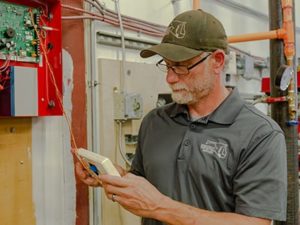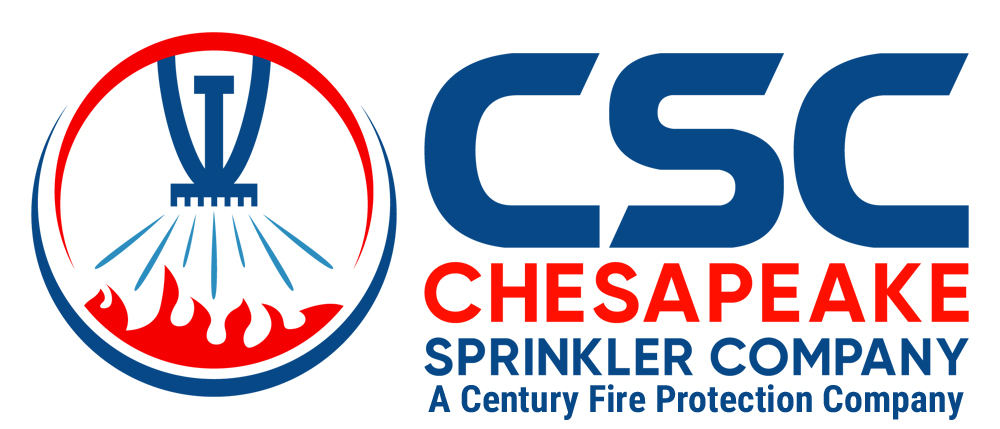
Need inspections or testing for your fire protection systems? Chesapeake Sprinkler Company can help keep you on schedule.
Fire protection systems are at times very complex depending on the site requirements or specific engineered demands. Various components such as fire sprinkler systems, fire suppression systems, and fire alarms help to create ideal protection for your commercial buildings. Without these systems in place, businesses may suffer far worse than necessary in the event of an emergency, possibly by even losing lives or valuable property. It also simply isn’t enough to have these high-quality systems installed; inspections and testing are also required by code to ensure systems stay operational and are in good working order. Here is a little more information about when to inspect fire protection systems.
The Difference between Inspections and Testing
Inspections and testing are both required to maintain compliant and functional fire protection. However, one should not use the terms interchangeably. Inspections, by definition, are a visual look at whether the components are in good order. An example of an inspection task is a technician visually checking to see if the fire sprinkler pipes are leaking or corroding. Testing by definition would be an operational check of all components of a given system. A qualified inspector would run various tasks depending on system type to ensure the proper physical operation of devices or components.
NFPA Codes
Building owners, engineers, or owner’s agents should speak with their fire protection company for details about timing their specific fire protection system inspections and testing. However, responsible parties can begin to gain clarity on this matter by reviewing the codes. Responsible personnel can always start by reviewing the specific codes set by the National Fire Protection Association. The NFPA has different sets of defining codes assigned for different types of suppression systems, including all types of fire extinguishing systems and fire alarms. It is also recommended to research your state’s guidelines, insurance company requirements, and local jurisdictions as some may follow different NFPA code versions or have separate requirements of their own.
Fire Protection Systems
Specific models of fire protection systems may also vary in their inspections and testing schedules. In general, fire protection system task schedules can break down to weekly, monthly, semi-annually, yearly, and sometimes greater intervals, such as three, five, or ten years depending on the task required. Weekly and monthly inspections can normally be performed by someone in-house with the proper training, but a professional is necessary for in-depth observations.
Local Codes and Insurance Policies
Lastly, find out when to inspect or test your fire protection systems from your city or municipality. You should always inquire if they require witnessing from an inspector working for the Fire Department Code Enforcement Division. Some of these Authorities having Jurisdiction will be more lenient, while others will tend to be stricter. Your insurance carrier or policy may also factor into your schedule. Insurance carrier requirements will always tend to lean on the more rigorous side of frequency and tasks. Be sure to always include the individual insurance carrier in your Fire Protection Maintenance plans to ensure compliance.
Contact Chesapeake Sprinkler Company Today!
Chesapeake Sprinkler Company is a leading fire sprinkler contractor in the region, which is now a 100% employee-owned (ESOP) company. As a full-service fire protection company, we offer design, fabrication, installation, testing, maintenance, and inspection of fire protection systems. Everything you need from your fire suppression specialist.
For more information, please email or call our Odenton location at 410-674-7041, our Ashburn location at 703-729-5150, or for service/maintenance Chesapeake Protection Services at 410- 674-7577. For emergencies, call 800-298-3473 (FIRE). Feel free to keep in touch through Facebook, Twitter, or LinkedIn!
